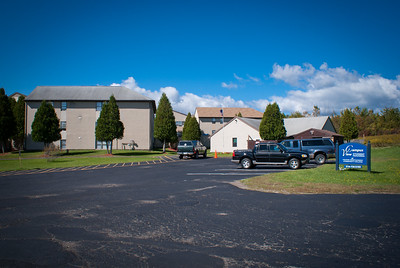Last week, Fulton-Montgomery Community College once again received permission from the US Department of Agriculture to sell its three empty dormitories. The New York Attorney General also gave its blessing for the community college dorm sale.
The plan to sell the dorms has been caught up in legal dramas that complicated the sale of the properties. At one point, the US Department of Agriculture withdrew its previously granted permission to sell the buildings. In 2010, the Fulmont College Association, which is a proxy owner for the buildings, received an $11.3M loan to refurbish two residence halls and build a third community college dorm.
The FMCC intended to use the community college dorm as a fundraiser. Initially, the plan was to attract international students to campus and house them in the dorms. Therein lies the problem. Community colleges are meant to serve their communities. They’re not meant to generate income.
From the beginning, the plan was at serious risk of failure. The pandemic ensured that the business model that relied on selling dorm space to international students would fail. It did, and FCA defaulted on its building loan. Worse than that, the FCA wanted to sell the dorms in a cozy sales arrangement at a below-market cost.
Community College Dorm Plan Destined To Fail
The FCA wanted to build a new dorm but didn’t want to ask its own taxpayers for support. It was sure that the demand for the dorm rooms would be hot. Not because local students wanted to live on campus. But rather, the plan to pay for the new dorm relied on recruiting foreign students to attend the community college. So it borrowed $11.3M from the Ag Department. The plan failed when the pandemic hit and all of the foreign students went home. FCA wanted to walk away from the loan. And on its way out, FCA wanted to sell the buildings for a fraction of what they were worth. So, it hired a former Trustee to fake-list the buildings on a non-existent MLS. And it probably would have gotten away with it, had it not been sued by a student.
Legitimate oversight of the College’s business dealings occurs only when the institution gets sued. By a student, no less.
The Trustees adopted a plan to build a building the local community didn’t need to house students from elsewhere. Instead of focusing on its mission and the needs of its local students, the Trustees accepted the position that the college is somehow a money-making venture.
This is what happens when the Trustees lose focus on the mission of the college and their statutory responsibilities. Look for this tragedy coming soon to a community college near you.
Photo Credit: Clemens V. Vogelsang , via Flickr


































